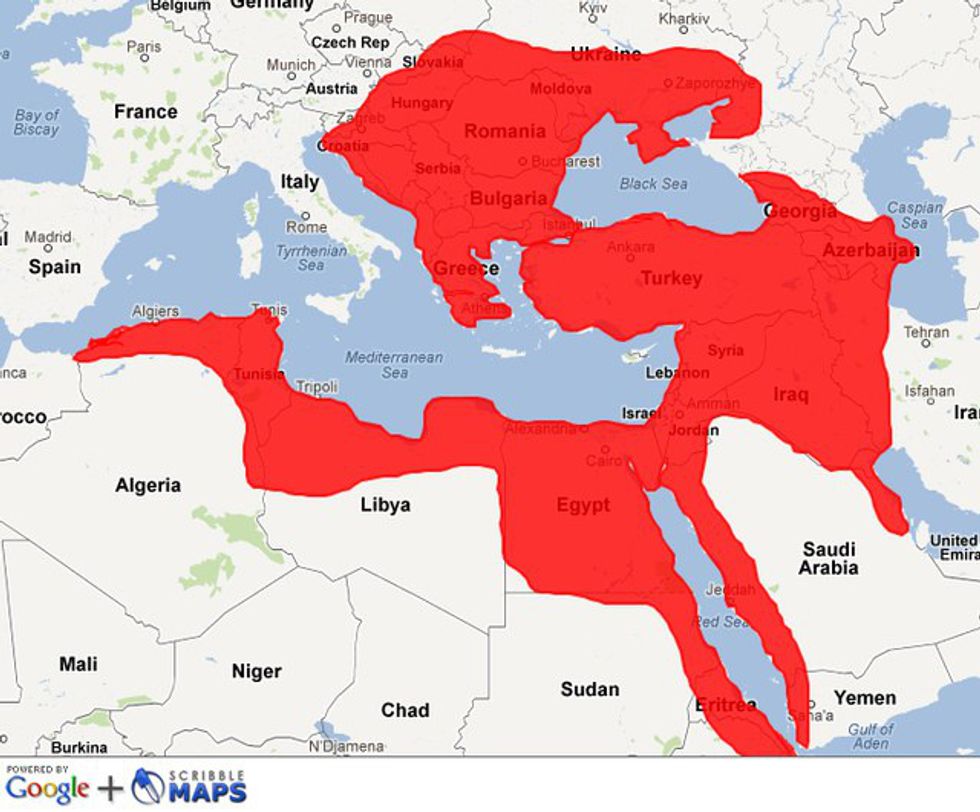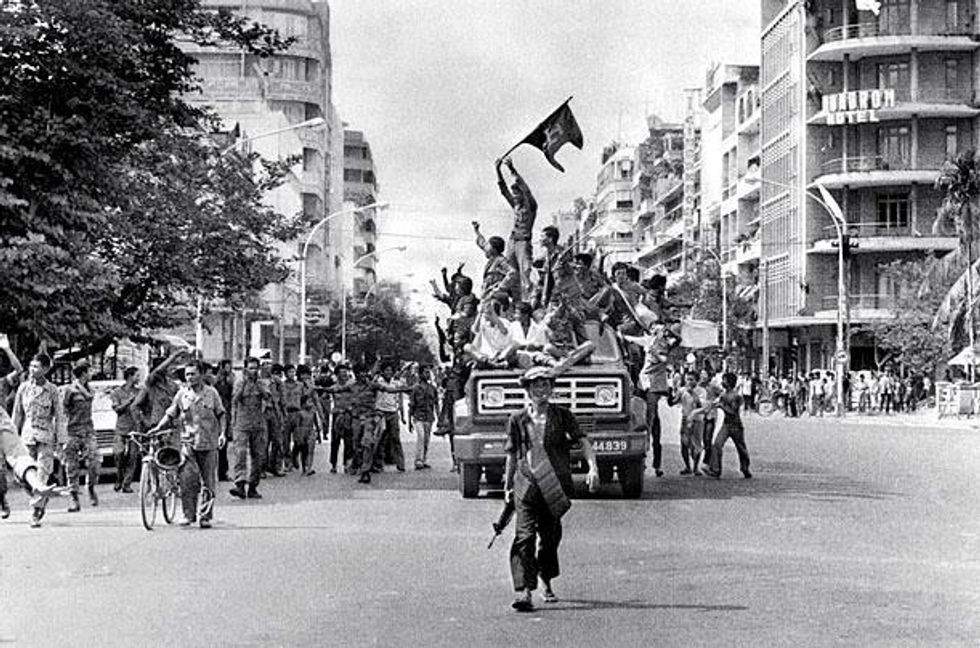It's no secret that the education system is a powerful way to influence a nation's populace. It's not just what curricula teach, but what they don't teach that can breed certain mindsets. I wish I knew the questions to ask in my high school U.S., European and world history classes now.
Note: I attended small secular private schools, so all I can say about how the district (Clark County) curriculum matched my own was that my friends in public schools seemed to be covering the same topics as me. I had fantastic history teachers, but they taught what was in the curriculum.
The Ottoman Empire
I recall a lot of pondering on the build and collapse of the Byzantine Empire in more than one history class. Meanwhile, I hardly knew of the Ottoman Empire. I could have at least heard a bit about this group in European history, other than getting an idea that they were Turkish.
I didn't know much at all about the Ottomans until I did a project on them this past semester. They weren't just "Turkish," Ottoman territories stretched into areas that make up modern European, African and Middle Eastern countries.
As we scratched our heads wondering what weakened the Byzantine Empire, it almost seemed like Constantinople was just ransacked by some barbarians from the mysterious other side. That leads me to my next point-
The Balkans
While learning about the Ottomans I realized that there was a section of Europe that I didn't know anything about. Honestly, I think I wouldn't have even known of Romania and Bulgaria before if it weren't for "Harry Potter and the Goblet of Fire."
In high school I learned a lot of things about the history of France, Germany, Russia, Italy, England, and a little about Spain and Greece, but these are not the only areas in Europe. I understand the connection that the United States has to these nations is noteworthy, but it wouldn't hurt to acknowledge the existence of other major countries in Europe from my European history class.
Some Balkan countries might have been mentioned when communist tensions came up and that's about all my classmates and I can remember for now.
Aboriginals
While we touched on Native American history (which we can always learn more about), I don't remember learning much, if anything, about Australian natives. Aboriginals have their own culture and history of oppression. It'd be interesting to at least touch on the large land mass that is Australia in world history.
Polynesian history
Also, Micronesia and Melonesia would be interesting to know at least a few things about. After all, Hawaii is the 50th state in the United States -- which leads me to my next point.
Hawaiian statehood
Hawaii's admission as a state might be brushed over with talks of agricultural advantages, if anything. What I'm also curious about, though, is the opinion of Hawaiians on statehood. How did it affect their politics, overall? I know a few things about Manifest Destiny, but not much about the annexation of Hawaii into the United States.
Economic and political intervention
I enjoyed learning about the ideals and struggles of maintaining a democracy in the United States, and the work that went into containment policies.
Meanwhile, let us learn more about intervention in other nations that struggled to democratize as economic interests in other countries compromised the process. I'm not an expert on this topic, which is why it's on the list.
I want to know about other political interventions. I'm not talking about the Iran hostage crisis matters; I'm curious about so much more.
The way my high school history class curriculum was laid out, I don't think the topic would have been stumbled upon for long, since South American, African, Caribbean and Middle Eastern nations were affected by these interventions (we mainly learned about ancient civilizations in such areas). However, the issue could be mentioned in class.
The genocides
It's important that we learn about genocides like the Holocaust, the Rwandan and Bosnian genocides, the Darfur murders, and the Khmer Rouge's actions in Cambodia. I recall learning about some of these topics, but others I only heard the names of.
As I write this, I realize that there are certainly more mass killings that didn't make the list I originally looked over, so here is another one that names some more. The lists could actually go on and on.
Your curricula might've been different from mine, and you might have gotten to touch on some of these incidences, but most of the history classes I'm thinking of were Advanced Placement. Their major exams are standardized, so if you took those classes, we probably learned most of the same material.
Sure we can't learn everything, but the amount of time spent on certain topics shows me that they may be important for us to understand, but at the expense of other parts of history that aren't being accounted for even though they can be.
I know that this list could fill up with so many other untouched topics. I hope to someday see a piece that supplements us all with more knowledge of issues that we didn't learn in middle and high school (or even college) history classes.




























